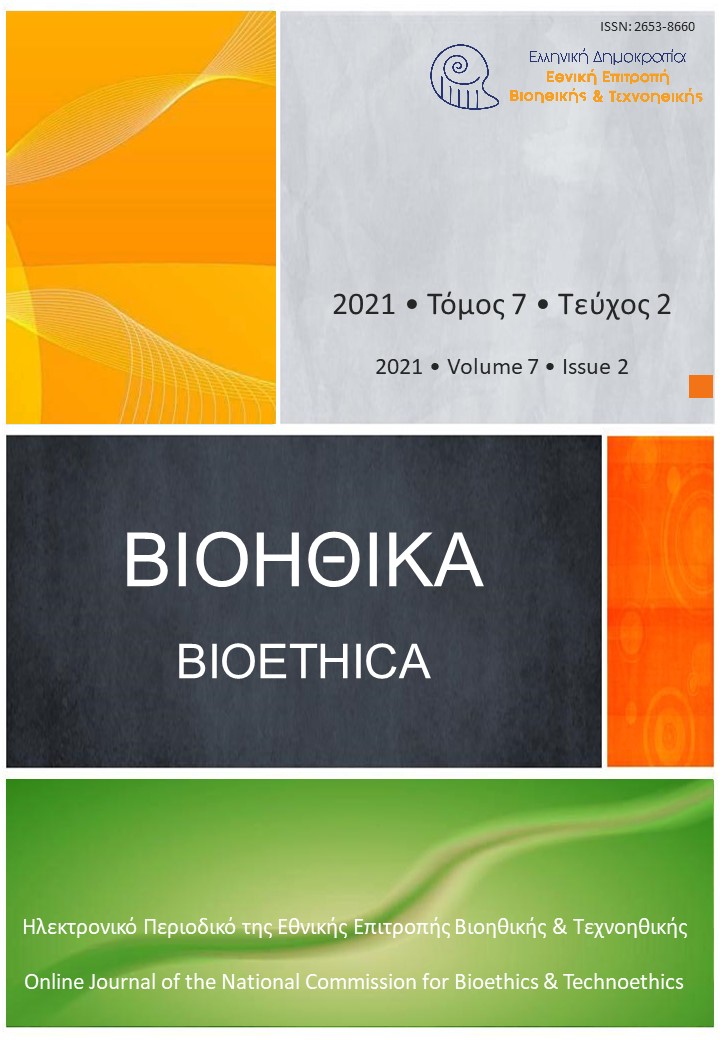The HES-code and the data protection during COVID-19 pandemic in Turkey
Abstract
Mobile applications are a beneficial tool to fight the coronavirus. With the mobile tracing applications, it became easier to cut the chain of transmission of the virus and reduce the number of daily cases. Many countries developed their applications and made them available to their citizens. While using these applications, it is necessary to protect the fundamental rights and freedoms of the individual. This frequent processing of individuals' health data has created legal problems regarding the protection of personal data. The purpose of this paper is to present a study on the Turkish Covid-19 tracing application “Hayat Eve Sığar-HES” and the legal issues behind the application.
Article Details
- Come citare
-
Cangil, S. M. (2021). The HES-code and the data protection during COVID-19 pandemic in Turkey. Bioethica, 7(2), 69–74. https://doi.org/10.12681/bioeth.28163
- Fascicolo
- V. 7 N. 2 (2021): Bioethica
- Sezione
- Reviews

TQuesto lavoro è fornito con la licenza Creative Commons Attribuzione 4.0 Internazionale.
Authors who publish with this journal agree to the following terms:
- Authors retain copyright and grant the journal right of first publication with the work simultaneously licensed under a Creative Commons Attribution CC BY 4.0 License, which allows for immediate free access to the work and permits any user to read, download, copy, distribute, print, search, or link to the full texts of articles, crawl them for indexing, pass them as data to software, or use them for any other lawful purpose. Appropriate credit must be given by citing the author(s) and the original publication in this journal.
- Authors are able to enter into separate, additional contractual arrangements for the non-exclusive distribution of the journal's published version of the work (e.g. post it to an institutional repository or publish it in a book), with an acknowledgement of its initial publication in this journal.
We encourage authors to deposit their articles, as well as data underlying the publications, in institutional and/or other appropriate subject repositories.
Bioethica permits and encourages authors to archive the final publication pdf in institutional (e.g. the repository of the National Hellenic Research Foundation) or other appropriate subject repositories (e.g. SSOAR repository for social sciences), in compliance with institutional and/or funder open access policies, after publication in the BIOETHICA. Authors must provide bibliographic details that credit publication in the journal, as well as related funding details (when applicable).
Lists of institutional and other subject-based academic open access repositories can be found listed by country at the registry http://opendoar.org/countrylist.php
If your institution does not possess a repository you may deposit a copy of your paper at no cost with www.zenodo.org , the repository supported for open access research in the EU by the European Commission, through the project OpenAIRE (www.openaire.eu )



